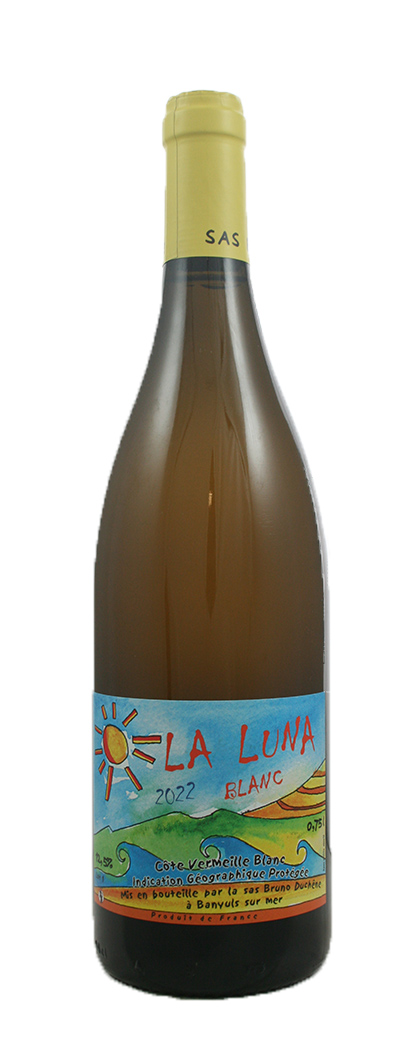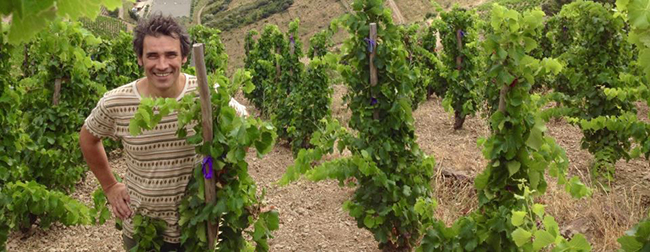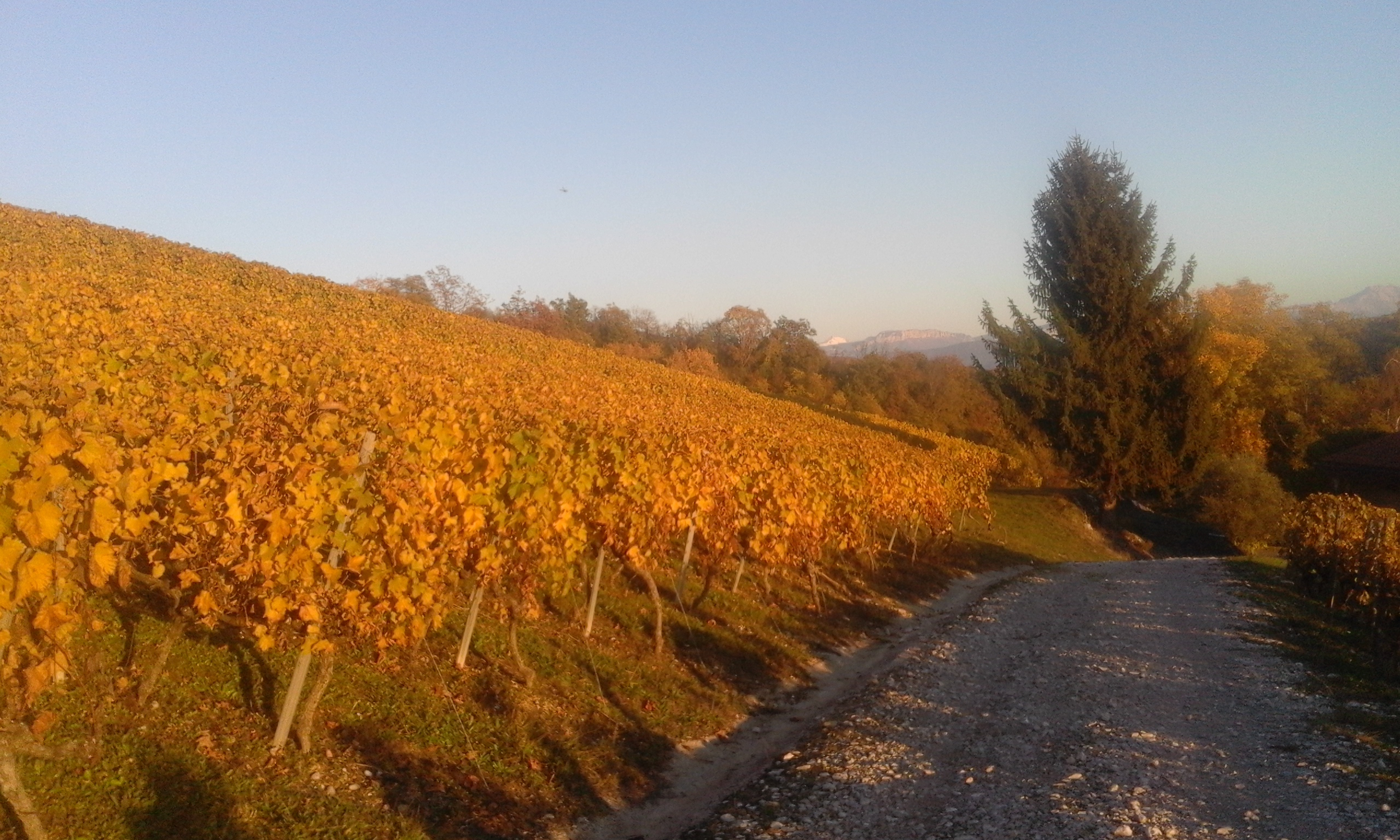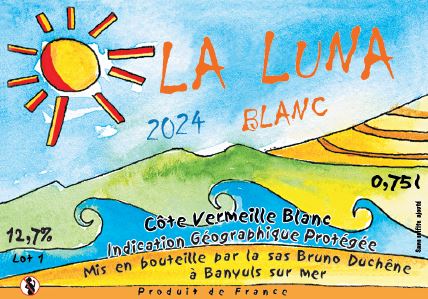La Luna Blanc by Bruno Duchene
I have been singing the praises of cool wines, whites that evoke the crisp fluency of shallow mountain streams gliding over polished stones, firm-skinned reds that gush with tart red juice when you sink your teeth into them, been lauding the wines from the glacial screes of Savoie as well as those from the hard white limestone of northern Burgundy. Also, praising non-extractive winemaking techniques, the subtle art of infusion, and examples of vinification where the preservation of crunchy acidity imbues the wine with beautiful dynamic energy.
Also – dare one say – that it is cool to like cool wines! Jura worshippers can rhapsodise about different types of marly soils and write considered “parcel-maniacal” treatises on the altitude and aspects of their favourite cool-climate vineyards. And being appreciated in the nerd-o-sphere.
For all that the favourite direction of the critical wine compass seems to point to the north of the north, I am becoming increasingly drawn towards the wines of the south and the flavours of the Mediterranean.
I am partial to white wines from fragrant citrus grapes evoking orange groves as well as the fleshy-to-dried fruit end of the flavour spectrum, wines often marked by aromas of sun-warmed dried apricot or peach-skin occasionally shot through with impressions of bleached earth and rocks and hay, or infused by bouquets of garrigue herbs and spices– fennel, marjoram, thyme, bay…
Cool climate wines tend to be constructed on acidity which carries fruit and chalky-mineral sensations across the tongue. Wines from warmer climes have a different profile, more reflective of their surroundings. Of course, within climates, there are micro-climates that are felt in the vineyards and shape the nature of the wines. There is the influence of the sea and the influence of the mountains, the aspect of the vineyards, the amount of sunshine received and the composition of the soils and the nature of the farming.
We associate Mediterranean regions with bold colours, light and heat – and exotic smells. The sort of smells that evoke colours and emotions. The paintings of Dufy, Derain and Matisse rendered into wine.
The evocations are personal but there are surely some common flavour perceptions. I am partial to white wines from fragrant citrus grapes evoking orange groves as well as the fleshy-to-dried fruit end of the flavour spectrum, wines often marked by aromas of sun-warmed dried apricot or peach-skin occasionally shot through with impressions of bleached earth and rocks and hay, or infused by bouquets of garrigue herbs and spices– fennel, marjoram, thyme, bay… Technically, Med wines will have moderate to low acidity and lean into the waxy/bitter textural idiom. Complementary varieties are, however, often blended to give the final wines their ultimate balance.
Some of the usual (and unusual) white grape suspects from Spain, France and Italy include Vermentino (or Rolle), Malvasia (several varieties), Muscat (several types), Giro Ros, Clairette, Marsanne, Roussanne, Bourboulenc, Grenache Blanc & Gris, Macabeu, Xarel.lo, Terret Blanc & Gris, Piquepoul Blanc & Gris, Verdicchio, Ansonica and Palomino. This peroration has been inspired by drinking Bruno Duchene’s IGP Côte Vermeille La Luna Blanc. Côte Merveille, more like! To exploit my own favourite wine cliché, this blend of Xarel.lo, Grenache Gris & Grenache Blanc tastes like “the Muscadet of the south”, by which I mean a wine that seems to have soaked up the salt air of the sea whilst simultaneously preserving the medicinal/herbal notes of the scrubland. My impression of the wine, of course. Wine has this undeniable capacity to transport you to places that you have never physically been but exist in your fond imagination. The feelgood aspect of drinking is that what appeals to your senses, eliciting real or fabricated wishful memories. The purity of a wine such as La Luna taps into some primal response centre. When I taste wine and think about grape variety, or terroir, or the skill (or otherwise) of the vigneron, I lose the deeper connection with that wine. The connection in this case is momentary, the sense of being transported is just a daydream, before the meddling intellect intervenes.
This peroration has been inspired by drinking Bruno Duchene’s IGP Côte Vermeille La Luna Blanc. Côte Merveille, more like! To exploit my own favourite wine cliché, this blend of Xarel.lo, Grenache Gris & Grenache Blanc tastes like “the Muscadet of the south”, by which I mean a wine that seems to have soaked up the salt air of the sea whilst simultaneously preserving the medicinal/herbal notes of the scrubland. My impression of the wine, of course. Wine has this undeniable capacity to transport you to places that you have never physically been but exist in your fond imagination. The feelgood aspect of drinking is that what appeals to your senses, eliciting real or fabricated wishful memories. The purity of a wine such as La Luna taps into some primal response centre. When I taste wine and think about grape variety, or terroir, or the skill (or otherwise) of the vigneron, I lose the deeper connection with that wine. The connection in this case is momentary, the sense of being transported is just a daydream, before the meddling intellect intervenes.

*
Interested in finding out more about Med wines? Contact us directly:
shop@lescaves.co.uk | sales@lescaves.co.uk | 01483 538820



